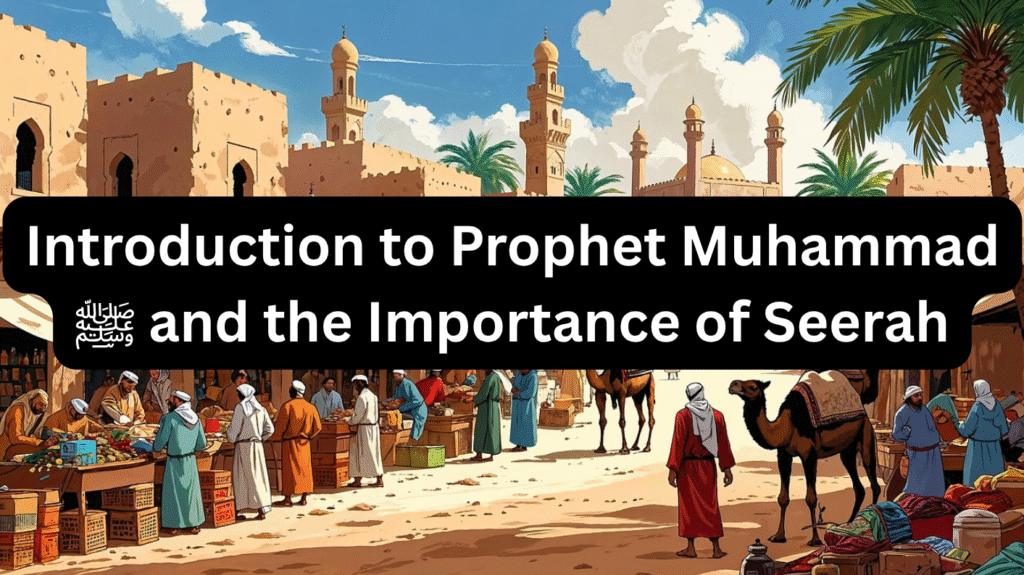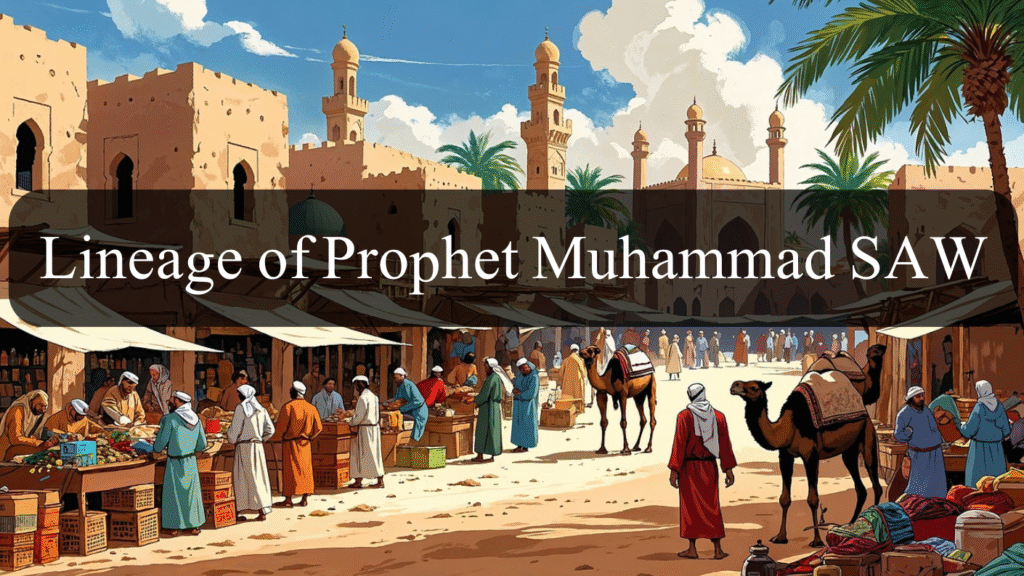Abu Qays ibn Abi Anas (RA) stands as a shining example of the Ansar (Helpers) of Medina, who played an instrumental role in the establishment and spread of Islam. As a member of the esteemed Aus tribe, his life reflects the profound commitment and sacrifice that characterized the early Muslim community. His story offers invaluable insights into the challenges and triumphs of Islam’s formative years.
Historical Context: Medina Before and After Islam
To fully appreciate Abu Qays’ contributions, one must understand the social and political landscape of pre-Islamic Medina. The city was divided by longstanding tribal conflicts, particularly between the Aus and Khazraj tribes. Abu Qays’ acceptance of Islam and his subsequent efforts to promote unity exemplify the transformative power of the Islamic message in healing societal divisions and fostering brotherhood.
Family Background and Early Life
Abu Qays hailed from the Banu Harithah ibn al-Harith clan of the Aus tribe, one of Medina’s most respected families. His father, Abu Anas Ma’adh bin ‘Afra, was a prominent figure in Medinan society, known for his wisdom and leadership. This noble lineage provided Abu Qays with a strong foundation for his future role as a Muslim leader and community builder.
Conversion to Islam: A Transformative Journey
Abu Qays’ conversion to Islam following the Hijrah represents a significant moment in Islamic history. His decision to embrace the faith demonstrates the powerful impact of the Prophet’s (PBUH) message on the people of Medina. Unlike many companions who faced persecution for their beliefs, Abu Qays’ conversion occurred in the supportive environment of Medina, yet it still required considerable courage to break from traditional tribal norms.
Military Contributions: defending the Early Muslim Community
Battle of Badr: The First Test of Faith
Abu Qays’ participation in the Battle of Badr (2 AH/624 CE) marked his first major military engagement as a Muslim. Despite being new to warfare, he fought with remarkable bravery alongside the Muhajirun and other Ansar. His performance in this decisive battle demonstrated his complete commitment to the Islamic cause.
Battle of Uhud: steadfastness in adversity
During the Battle of Uhud (3 AH/625 CE), Abu Qays played a crucial role in protecting the Prophet (PBUH) during the most challenging moments of the conflict. His unwavering loyalty during this difficult test earned him respect among the companions and highlighted his exceptional character.
Battle of the Trench: Community Spirit and Innovation
Abu Qays’ contributions to the Battle of the Trench (5 AH/627 CE) extended beyond combat. He actively participated in digging the trench, showing that manual labor for the community’s defense was just as honorable as fighting on the front lines. This attitude embodied the Islamic values of humility and collective effort.
Other Military Campaigns
Abu Qays continued to serve in subsequent military engagements, including the Battle of Khaybar (7 AH/628 CE), the Conquest of Mecca (8 AH/630 CE), and the Battle of Hunayn (8 AH/630 CE). His consistent participation in these campaigns shows his enduring dedication to defending and spreading Islam.
Contributions to Islamic Education and Knowledge
Beyond his military service, Abu Qays made significant contributions to Islamic education:
Quranic Instruction: He served as a Quran teacher, helping to preserve and transmit the divine revelation
Hadith Narration: He transmitted several important hadiths concerning prayer, charity, and jihad
Educational Institution: He established a learning center in Medina that became a model for future Islamic schools
Community Education: He organized educational programs for new Muslims, ensuring proper understanding of Islamic principles
Social Reforms and Community Development
Abu Qays recognized that building a strong Muslim community required addressing social needs:
Social Welfare Systems: He developed comprehensive systems for orphan care and poverty alleviation
Economic Development: He introduced innovative agricultural techniques and supported local trade
Inclusive Community Building: He ensured that vulnerable community members, including the disabled, received proper care and support
Intercommunity Relations: He worked to maintain positive relationships between different tribal groups in Medina
Spiritual Legacy and Personal Character
Those who knew Abu Qays described him as embodying the highest Islamic values:
Integrity: His honesty and trustworthiness became legendary in Medina
Compassion: He was known for his generosity and concern for the less fortunate
Courage: He faced challenges with remarkable bravery and determination
Humility: Despite his achievements, he remained modest and approachable
Historical Accounts and Documentation
The preservation of Abu Qays’ story through multiple historical sources demonstrates his importance in early Islamic history. Major historians including Ibn Athir, Ibn Hajar al-Asqalani, and Ibn Sa’d documented his life and contributions, ensuring that future generations would remember his example.
Relevance for Contemporary Muslims
Abu Qays’ life offers important lessons for modern Muslims:
Community Service: His dedication to social welfare reminds us of our responsibility to serve society
Lifelong Learning: His commitment to education emphasizes the importance of knowledge in Islam
Intercommunity Harmony: His efforts to build bridges between different groups provide a model for contemporary community relations
Balanced Living: His ability to combine military service, educational work, and social reform shows the importance of comprehensive engagement with society
Conclusion: An Enduring Legacy
Abu Qays ibn Abi Anas represents the best of the Ansar – those who welcomed, supported, and sacrificed for the Muslim community without seeking reward or recognition. His life demonstrates how ordinary individuals can achieve extraordinary things through faith, dedication, and service to others.
Final Prayer
“O Allah, shower Your mercy upon Abu Qays ibn Abi Anas and all the companions of Your Prophet. Grant us the ability to follow their example and unite us with them in Paradise. Ameen.”
Sources and References:
Usd al-Ghabah fi Ma’rifat al-Sahabah – Ibn Athir
Al-Isabah fi Tamyiz al-Sahabah – Ibn Hajar al-Asqalani
Tabaqat Ibn Sa’d
Tarikh al-Tabari
Sirat Ibn Hisham
Al-Isti’ab fi Ma’rifat al-Ashab – Ibn Abd al-Barr
Ma’rifat al-Sahabah – Abu Nu’aym al-Isfahani
Hilyat al-Awliya – Abu Nu’aym al-Isfahani





